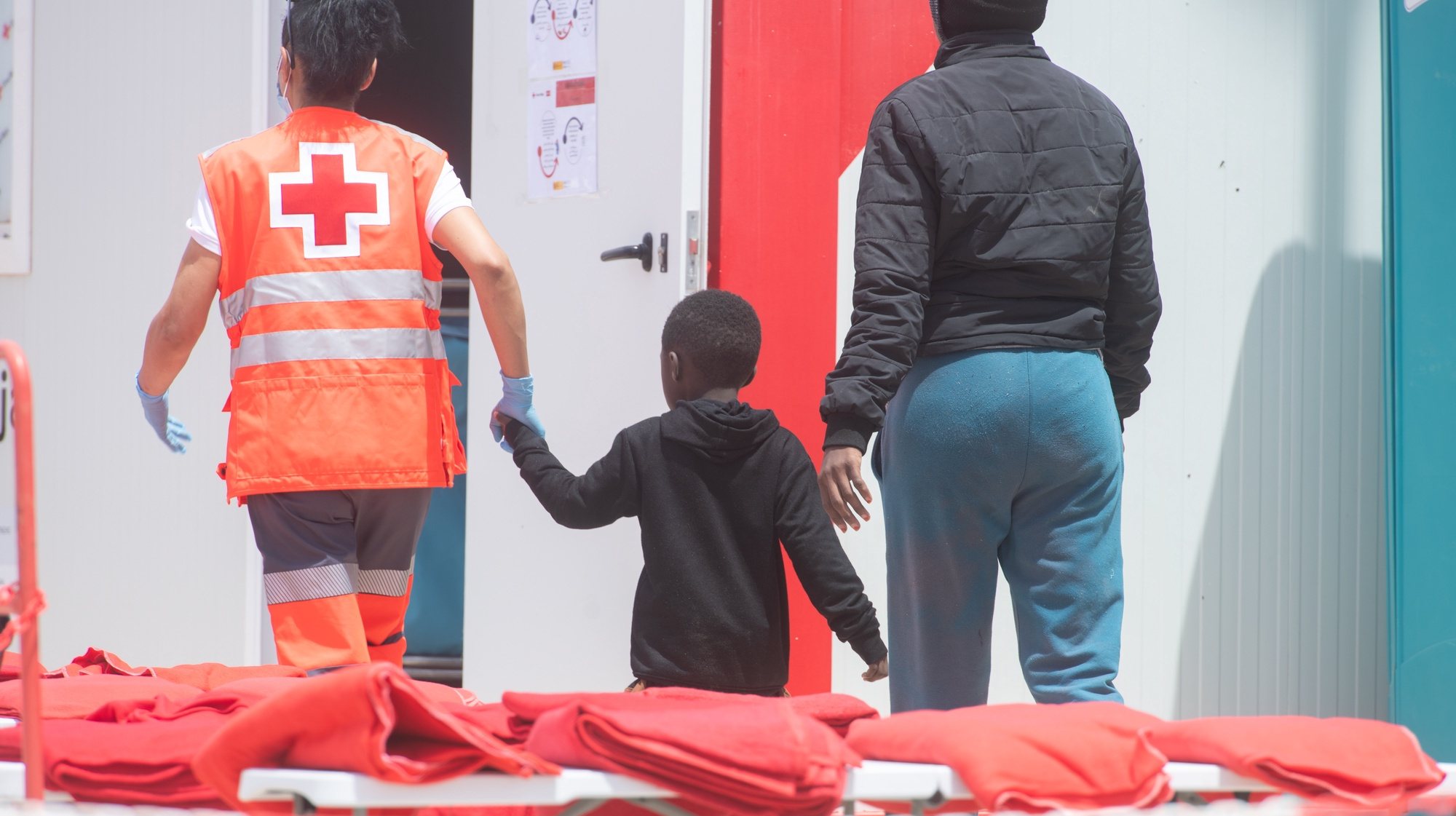Nearly six thousand minors were taken in, having only arrived on the islands in precarious boats from Africa.
The Canary Islands are home to nearly six thousand minors who arrived on the islands in precarious boats from Africa, according to local authorities, who are asking the rest of Spain for help in the face of the humanitarian crisis, but have yet to receive a response.
The situation of the minors, who live in overcrowded, makeshift and temporary shelters, with limited healthcare, no schooling and no access to other services, as required by Spanish and European legislation, has been reiterated in the media and denounced by non-governmental organisations (NGOs), the Spanish Ombudsman and the authorities of the archipelago, located in the Atlantic.
In the political debate it has become a weapon of attack between the parties, while the call from the Canary Islands for minors to be taken in by the different regions of Spain remains unanswered and even a legislative proposal with this objective was rejected this week by Parliament, because of the votes of the Popular Party (PP, right), Juntos pela Cataluña (independent right) and Vox (extreme right).
Spain, with 17 autonomous communities, is a decentralised state and the reception of unaccompanied minors is the responsibility of regional governments.
In view of the increase in the number of immigrants arriving in small boats (pateras) for over a year, the Canary Islands have called for solidarity from the rest of the country, especially in relation to unaccompanied minors, stressing that, given the size of Spain, it would not be particularly difficult to share the reception and protection of these children and adolescents.
The Canary Islands have the capacity to accommodate 2,000 minors, but currently have around 6,000 on the islands, according to the regional government, which has warned, as have NGOs, of the foreseeable worsening of the situation from the end of summer, when the number of ‘pateras’ normally increases.
On July 10, the remaining 16 regions agreed to take in 400 of the minors in the Canary Islands, in an agreement that replicates other similar agreements reached in 2022 and 2023, which, in addition to being voluntary and insufficient, were not fulfilled.
This was highlighted by the governments of the Canary Islands and Spain, which this week submitted to parliament a proposal to revise the immigration law to make the distribution of minors in all regions obligatory and automatic when the capacity of children to be received in one of them is exceeded by 150%.
The proposal was rejected after hours of debate in plenary and behind-the-scenes negotiations.
The PP and Juntos por Cataluña accused the Socialists (at the head of the Spanish government) of not having negotiated with the opposition, of not guaranteeing the regions the necessary financial resources or of not even having an immigration policy.
Vox, for its part, is opposed on principle to the reception of minors and argues that they should simply be “returned to their origin”, speaking of the need to avoid a “memory effect” and associating immigration and these minors with crime, despite international standards. National studies and statistics deny this link.
The other parties accused the PP, Juntos pela Cataluña and Vox of a lack of humanity, lack of solidarity, racism and xenophobia.
The agreement of July 10 had already meant, on the other hand, the end of the governing coalitions of the PP and Vox in five autonomous communities, by decision of the far-right party, which condemned the people for accepting the understanding.
“It is regrettable. There are many topics and speeches to slander and insult. Do not use minors for this,” said this week in Parliament the deputy Cristina Valido, of the Coalición Canaria party (right), which governs the islands in coalition with the PP.
The MP spoke of a “daily tragedy” on the archipelago’s coasts and of a “deadly Atlantic migration route” and stated that “there is no more time” to respond to the situation of thousands of minors, to the exhaustion of professionals who are looking after them and providing them with more places to welcome them.
“There are none. More than 500 people arrived this weekend, and at the moment there are minors at sea who we don’t know if they will make it to land. We pray that they arrive, but the sad thing is that there are some who wish they wouldn’t,” said the deputy, who stressed that migrants and minors are fleeing countries “where they don’t have a single painkiller or a meal a day,” but are victims of insults and lies promoted on social media by political parties.
Cristina Valido added, in line with what other parties have expressed, that the modification of the immigration law, in addition to being a question of humanity, was advantageous “for the entire territory”, as it also implied the integration of minors, who represent an opportunity and a future for Spain.
“They are here. They are the taxpayers of the future, they are the farmers of the future. We are going to need them,” he said.
Around 20,000 people arrived in the Canary Islands by boat this year, 160% more than in 2023.
Among them are children and teenagers who left Africa alone or who lost their parents during the crossing. There are also cases such as that of a two-year-old girl who was rescued alive from a boat last week, but ended up dying on land.
Source: Observadora
